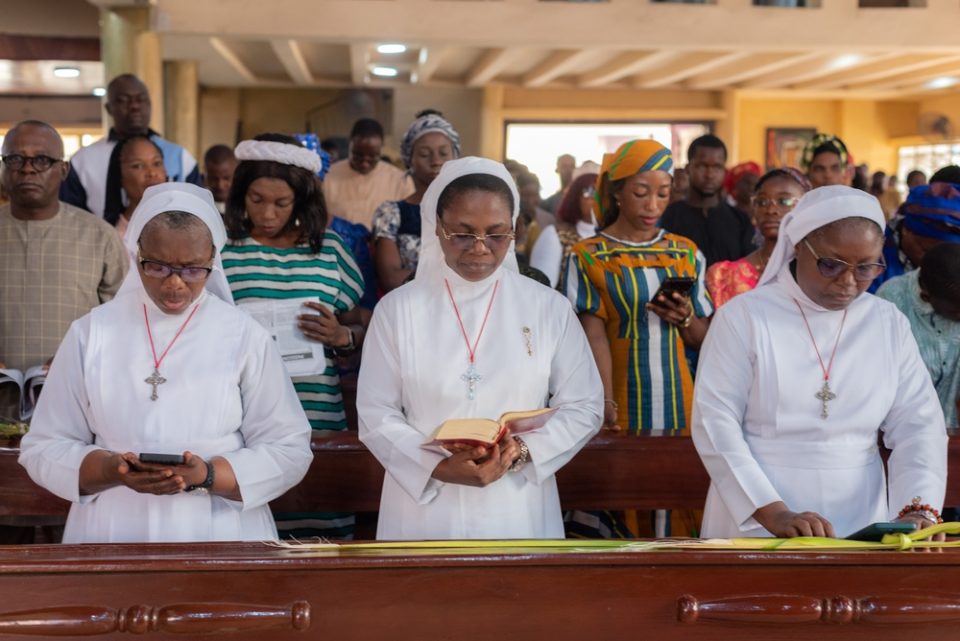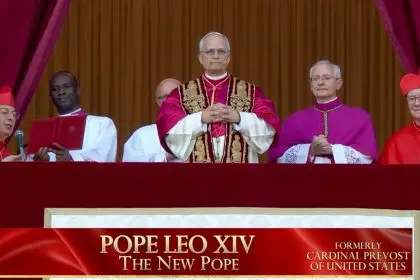Longtime parishioner shares heartfelt reflection on departing Catholic Church 
After 72 years of devoted Catholic faith, the decision to leave the Church was not made lightly. It came from profound reflection and a growing sense of disillusionment with the institution. Recent closures of churches in Baltimore, including St. Ann Church, underscore not just structural changes, but a deeper crisis within the Church—one marked by misalignment with the values of its congregants.
Institutional challenges
The Catholic Church faces an array of interconnected issues that have eroded trust and alienated many of its members. These challenges range from the exclusion of women from leadership positions to a dissonance between Church doctrines and the modern world. For a community that once found solace in religious teachings, these issues have become difficult to reconcile.
Gender discrimination remains a central concern. Women have long been barred from serving as priests, an exclusion that has drawn criticism from within and outside the Church. This continued gender imbalance stifles the perspectives that could enrich spiritual guidance and community building.
Resistance to modernization has also become apparent. The Church’s reluctance to evolve in response to contemporary social issues—whether that be LGBTQ+ rights, reproductive freedom, or a broader acceptance of science and technology—has left many feeling estranged from their faith. Such resistance has not only limited the Church’s ability to engage with the changing world but has pushed away those seeking a faith that reflects their lived realities.
Leadership disconnect further exacerbates the problem. There is an increasing divide between the higher echelons of Church authority and the needs of the congregants. Parishioners, especially those from marginalized communities, often find themselves ignored or misunderstood by leadership. This divide leads to a profound sense of disenfranchisement, with members feeling their voices are no longer a part of the conversation.
Racial justice remains another thorn in the side of the Catholic Church. While efforts have been made to address racial inequality, many in the Black Catholic community still feel the Church’s responses are insufficient. This perceived lack of action has further strained ties and left many questioning their place within the institution.
Community impact
The impact of these issues is not just abstract; it has tangible, disruptive consequences for communities. One of the most striking examples is the “Seek the City to Come Initiative,” a program aimed at revitalizing the Church’s influence and reach but has unintentionally fractured congregational unity.
Abrupt church closures have left congregants reeling. Sacred spaces, once at the heart of community life, have been shuttered, displacing generations of worshippers. This disruption does more than affect Sunday routines; it severes community bonds that have held people together during periods of joy and sorrow.
Insufficient support for struggling congregations has amplified the sense of abandonment. Parishes left to fend for themselves are often unable to provide the spiritual and social services that were once staples of their mission. The loss is particularly poignant for congregations that have historically served as lifelines for marginalized groups.
Limited resources for growth and evangelization have hindered the Church’s ability to connect with younger generations or those searching for a sense of belonging. The response to this shift has been piecemeal and disconnected, leaving few opportunities for rejuvenation.
Ignored advocacy efforts for the canonization of African-American saints reveal a deeper neglect. The push for recognizing figures like Sister Thea Bowman, a powerful voice advocating for Black inclusion, has been met with a lack of momentum from the Church’s leadership. This failure to elevate and celebrate Black religious history only reinforces the perception of exclusion.
Personal transformation
The decision to leave the Catholic Church represents more than a departure from tradition; it symbolizes a quest for spiritual integrity.
Faith transcends institutional boundaries, a realization that opens new pathways for spirituality. While traditional Church teachings hold significant value, the essence of faith can be preserved outside the institution that once defined it. Many discover that their spiritual connection deepens when unshackled from structures that no longer align with their beliefs.
Spiritual authenticity requires alignment with personal values. For many, true faith means a commitment to personal principles over the dictates of an organization. This shift encourages individuals to seek faith that nurtures their identity and advocates for justice—especially when institutional teachings have historically been at odds with such values.
Religious identity need not compromise racial identity. The intertwined nature of faith and race can be a source of empowerment, not tension. Yet, for those in the Black Catholic community, finding an environment that harmonizes both aspects has become a powerful motivator to reconsider their religious affiliations.
Growth sometimes requires difficult departures. Although leaving a beloved institution can be daunting, it can also be a step toward greater self-awareness. It signals the courage to advocate for one’s beliefs even when it means stepping away from a traditional path.
Looking forward
For those who choose to walk away from Catholicism, the journey does not necessarily signify the end of faith. It represents the transformation of spirituality from institutional allegiance to personal conviction. As this shift unfolds, the challenge and opportunity lie in finding or creating communities where faith is lived authentically and inclusively—proof that spirituality can endure beyond the walls of tradition.
The departure from the Catholic Church highlights the need for reflection and reform. It is a poignant reminder that for faith to flourish, it must evolve, adapt, and embrace the varied perspectives of those who hold it dear.

















